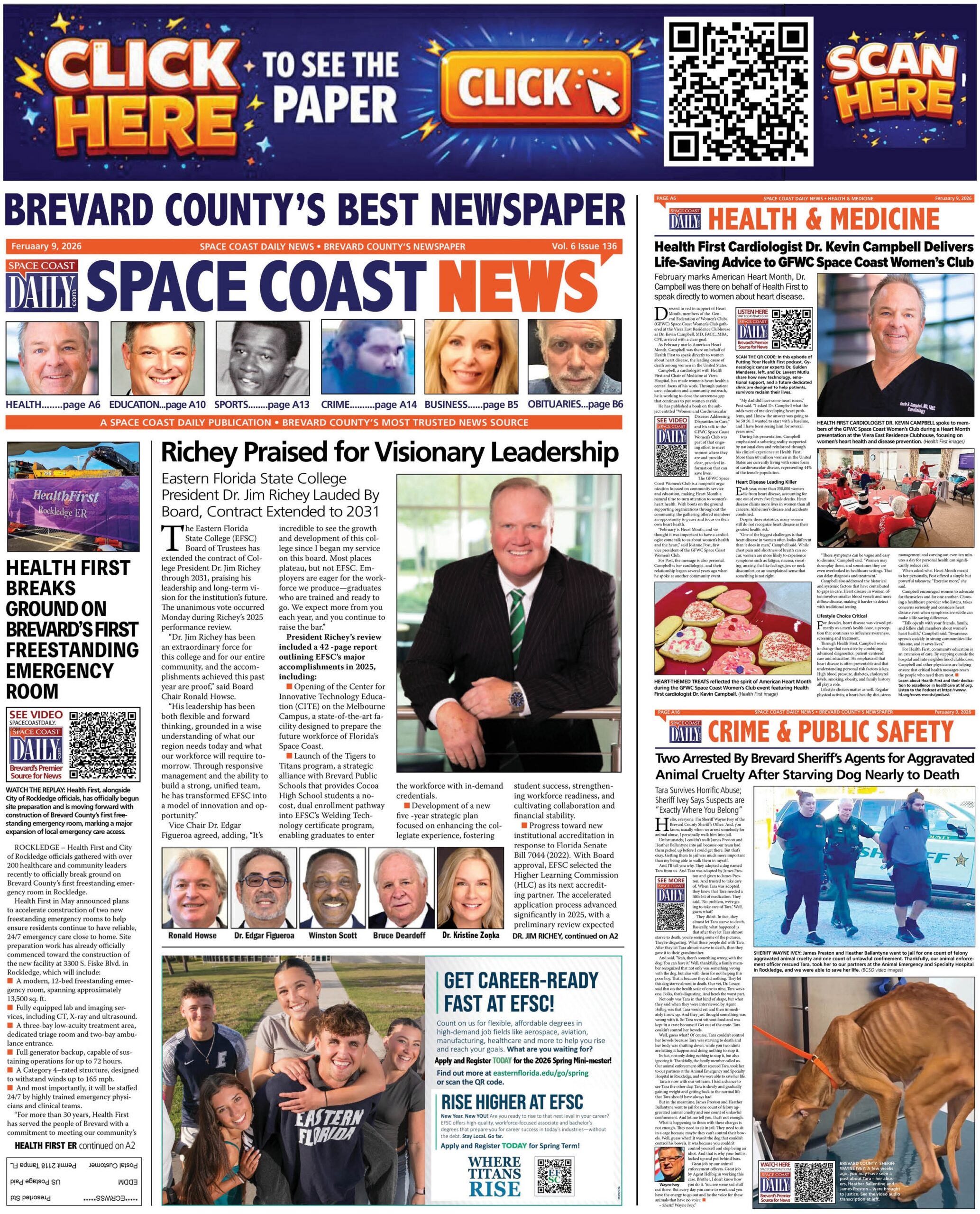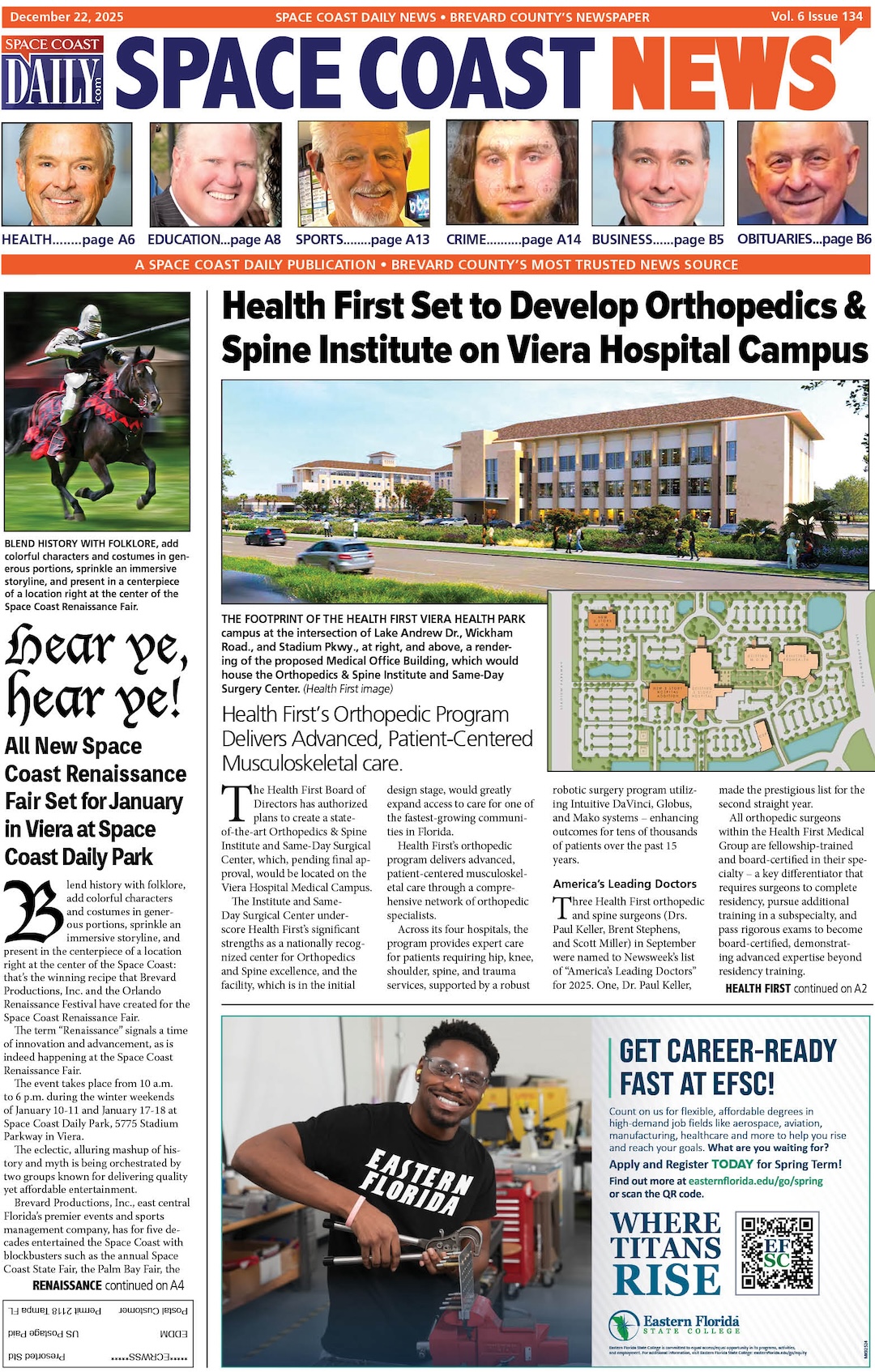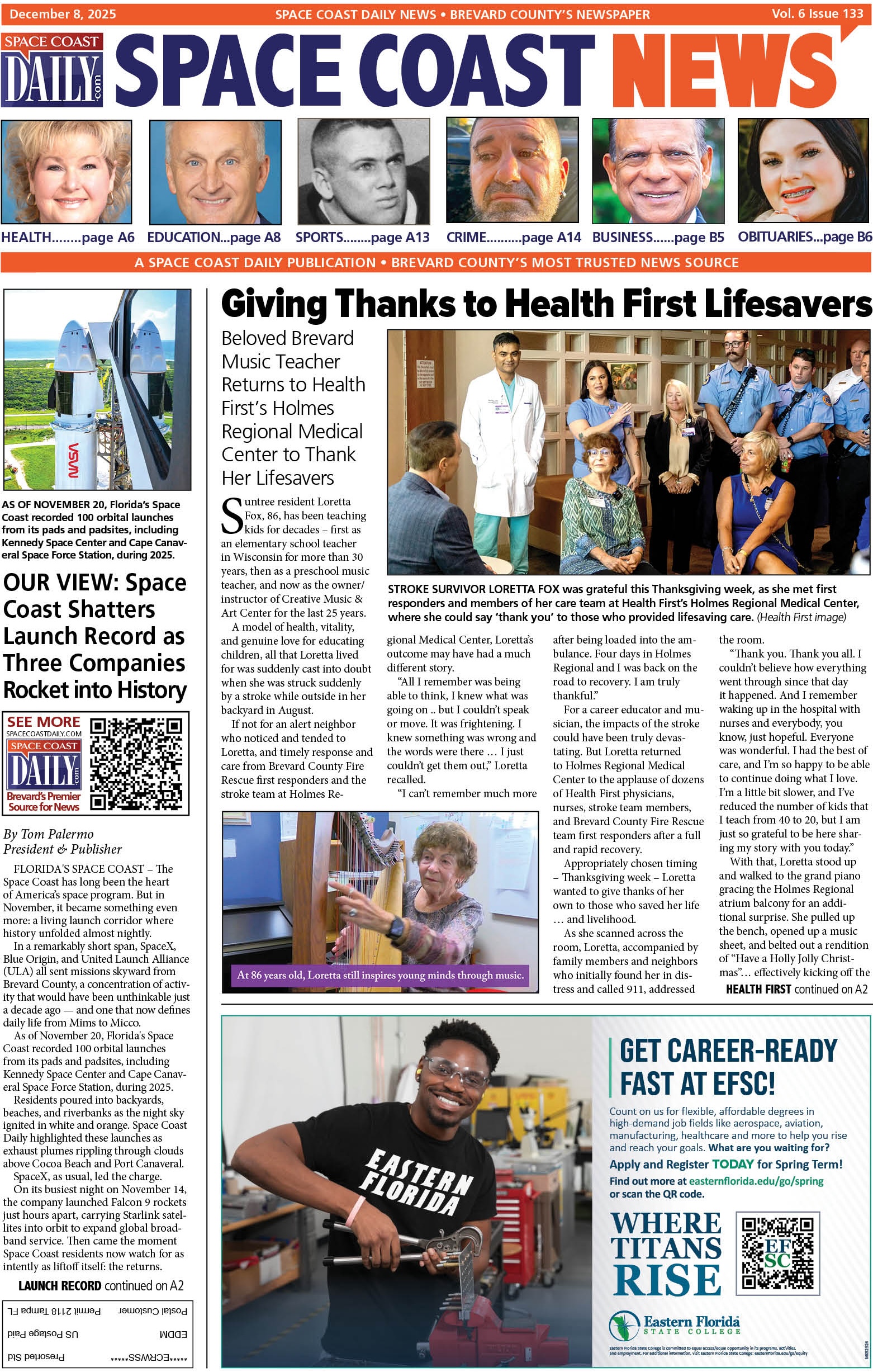Emad Mikhail Bishai, MD, Shares His Inspiring Journey in Psychiatry and Pain Management and His Resilience Through Challenges
By Space Coast Daily // July 3, 2025

Emad Mikhail Bishai, MD, born in Cairo, Egypt, in 1972, embarked on a remarkable journey in medicine that spans his early days in medical school to his current role as a prominent figure in psychiatry and pain management in the United States. Educated at Cairo University, Emad Mikhail Bishai completed his medical degree and internship before serving as a physician for the Navy Seals, eventually moving to the United States to further his training and career. He has held various significant roles, including a psychiatric residency, a medical directorship at Pinnacle Health System in Pennsylvania, and a fellowship in pain management at the University of Pittsburgh. Settling in The Woodlands, Texas, Emad Mikhail Bishai has made substantial contributions to the field, including pioneering surgical techniques and developing integrated care models. This article presents an interview with Bishai, providing insights into his professional growth, challenges, and personal philosophy.
Background and Journey
Could you describe the path that led you to your current role, balancing patient care with administrative responsibilities?
My journey began with medical school at Cairo University, followed by an internship, military service, and training in orthopedic surgery. Moving to the USA, I joined the research team at Mount Sinai School of Medicine in New York, eventually transitioning to a psychiatry residency in 2001. The most formative period was perhaps the eight years of combined internship, military service, and two residencies, which not only shaped my clinical skills but also my administrative and business acumen. Owning and managing my practice today requires continuous learning and adaptation, and each day offers new lessons in leadership and patient care.
What early experiences or roles significantly shaped your views on leadership or patient care?
After completing my psychiatry residency in 2005, I assumed a leadership role in Pennsylvania, filling in for Dr. Stephen Mitchell, whose untimely passing had left a significant void. This position involved overseeing three hospitals and teaching, which was daunting yet profoundly impactful. It honed my leadership skills, taught me the intricacies of supervising nurse practitioners, and allowed me to build an outpatient service from the ground up, shaping my approach to patient care and leadership in the medical field.
Professional Growth and Innovations
How do you ensure you remain at the forefront of the latest trends in healthcare policy and medical technology?
From the outset of my private practice, I have vowed to stay current with the latest advancements, particularly those approved by the FDA for safety and efficacy. This commitment means no treatment is off-limits for my patients. For instance, I implanted the first mini high-frequency spinal cord stimulator in Houston back in 2016, a significant milestone for both my practice and my patients. Staying informed and adaptable is crucial in this ever-evolving field.
Can you share a significant clinical breakthrough you’ve been part of?
Owning both a surgical center and the first integrated care psychiatric hospital in Texas has allowed me to innovate with purpose. A memorable case involved a Marine veteran injured by a grenade in Iraq. Despite financial risks, I assumed full responsibility for a device critical to his recovery. The surgery’s success, regarded as impossible by some, was a testament to our commitment to patient outcomes over feasibility.
Challenges and Resilience
You’ve faced significant public and legal challenges recently. How did you navigate through them?
The most trying moment was being told to report to jail within 24 hours on November 4, 2019. The emotional pressure was immense, yet there was a certain divine reassurance in the coincidence that I had begun practicing on the same date nine years earlier in Texas. This, to me, was a sign of divine support for my journey. Such challenges have reinforced my reliance on faith and the unwavering support of my community.
What mindset or philosophy has helped you remain resilient throughout your career?
Resilience, for me, is rooted in faith and the support of my community. Psalm 23:4 offers comforting assurance that I am never alone, even in the midst of adversity. The genuine support from my colleagues, patients, and staff has been invaluable, reminding me of my purpose and the divine mission we each have. This mindset has been crucial in overcoming the challenges faced in my career.
MD’s journey is a testament to the power of perseverance, innovation, and faith. His insights reflect a profound commitment to patient care and a proactive approach to addressing challenges in the rapidly evolving healthcare landscape.
Expertise and Achievements
Could you elaborate on how you manage to balance your expertise in psychiatry and pain management, especially when introducing new treatments?
The key to balancing my roles in psychiatry and pain management is a commitment to continuous education and innovation. During my fellowship at the University of Pittsburgh Medical Center, I mastered kyphoplasty, a skill initially reserved for neurosurgeons, by taking additional training courses and collaborating with experts. My focus has always been on refining techniques to improve patient outcomes, such as achieving a significantly low recurrence rate of fractures after surgery.
What are some key achievements or contributions you have made within your field?
One of my most notable achievements is introducing the first mini high-frequency spinal cord stimulator in Houston, a groundbreaking procedure at the time. I was also among the first to use minimally invasive techniques for spinal stenosis with spine spacers. These advancements have not only enhanced my practice but have also contributed to better patient care and outcomes.
Who have been your biggest influences in your career, and in what ways have they impacted your work?
I have been fortunate to have mentors like Dr. Fayek Nakhla and Dr. Nashaat Rizk, who have significantly influenced my career. Dr. Nakhla, my residency mentor, instilled in me the importance of psychodynamic theory and helped me navigate through complex psychological issues. Dr. Rizk inspired my passion for teaching and mentoring, encouraging me to share my knowledge and skills with the next generation of medical professionals.
Vision for the Future
Looking ahead, what are some of the goals or projects you hope to achieve in the next few years?
My vision for the future is to expand the integrated care model, which combines psychiatric care with other medical specialties, that I’ve established in my practice. This model has shown promising results in treating complex conditions with a holistic approach. I also aim to continue pioneering innovative surgical techniques and to support the development of new, less invasive pain management solutions.
How do you see the field of psychiatry and pain management evolving, and what role do you hope to play in that evolution?
The future of psychiatry and pain management is moving towards more personalized and minimally invasive treatment options. I plan to be at the forefront of this evolution, contributing through clinical research and the development of novel therapies that are tailored to individual patient needs. Additionally, I believe in fostering collaborations between different medical disciplines to enhance overall patient care.
What advice would you give to young professionals aspiring to enter the fields of psychiatry and pain management?
Young professionals should embrace the challenges and setbacks that come with these fields as opportunities for growth. Persistence and dedication to patient care are paramount. Always remember the importance of compassion in medicine, and never lose sight of the impact your work can have on patients’ lives. As I’ve learned, even in the operating room, a sense of peace and determination can lead to remarkable outcomes.
In concluding this insightful interview, Emad Mikhail Bishai, MD‘s career is a profound example of dedication and resilience. His journey highlights the importance of continuous learning and innovation in medicine, and his vision for the future promises to make significant contributions to the fields of psychiatry and pain management.












